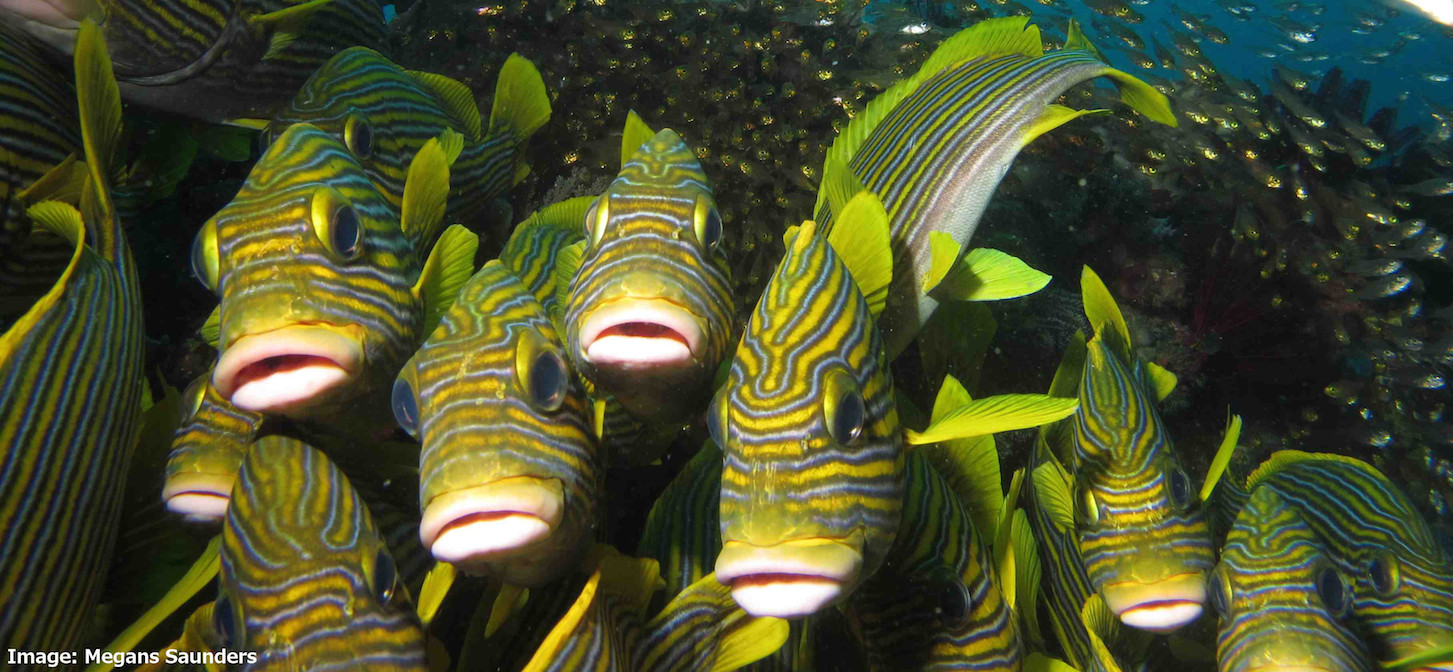Marine reserves without the short-term losses in harvest
Marine reserves are a popular management tool for recovering depleted fish stocks. However, before fishers receive the long-term benefits of spillover from the reserve, they must endure a short-term decline in harvest. A short-term loss in harvest may be untenable for some fishers, particularly those relying on the fishery to feed their families.

We used models of a coral reef fishery to ask how the short-term burden of a reserve can be lessened. Many coral reef fisheries are depleted but also support many millions of fishers world-wide, so our study has high practical relevance. We considered different scenarios for creating a reserve, that lessen the burden, including:
- Gradually increasing the reserve size, up to a target size, each year
- Gradually increasing the number of months a year an area is closed to fishing
- Gradually increasing the number species protected within a reserve
We found that gradually bringing in the reserve over multiple years lessened the short-term burden, but still brought the same long-term benefits of spillover and improved harvest. However, there was a trade-off: it took longer for the fishery to fully recover.
We found that gradually bringing in the reserve over multiple years lessened the short-term burden, but still brought the same long-term benefits of spillover and improved harvest. However, there was a trade-off: it took longer for the fishery to fully recover.
So, a gradual approach to bringing in a reserve can be better for people and still result in the same long-term benefits. In practice, the approach taken will depend on the local situation. For instance, gradually building the size of a reserve may be easier to enforce than limiting what fish species people can catch.